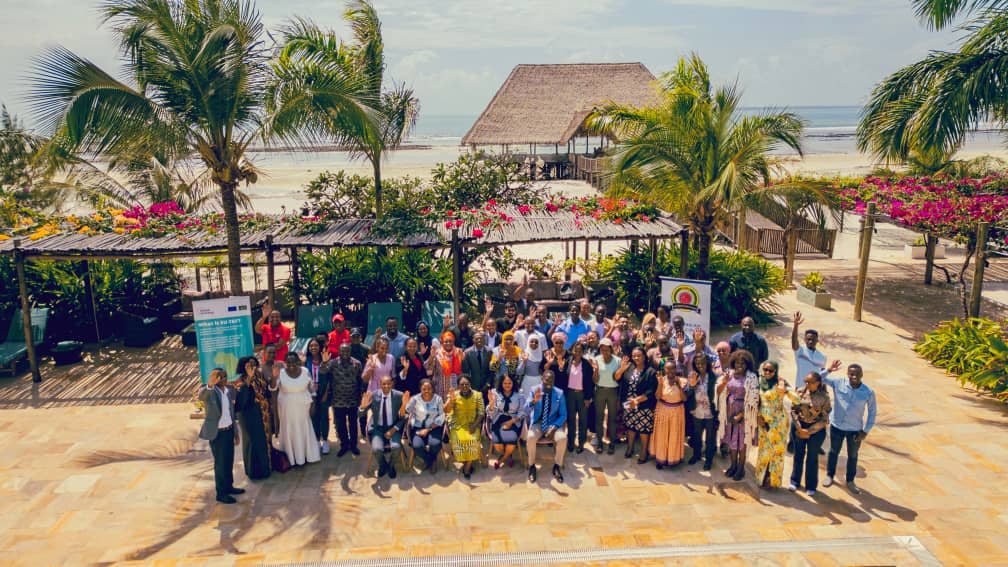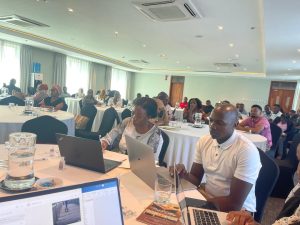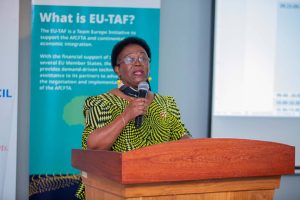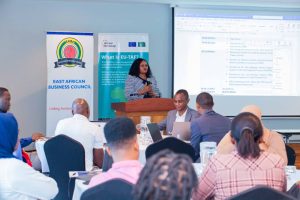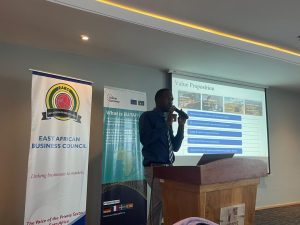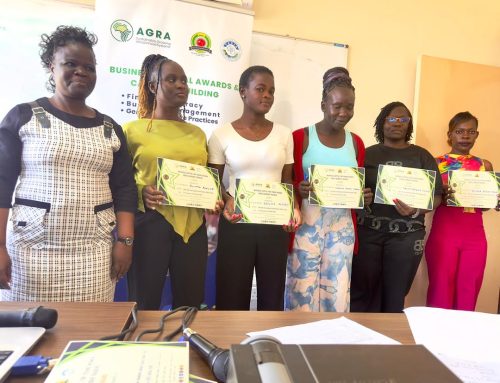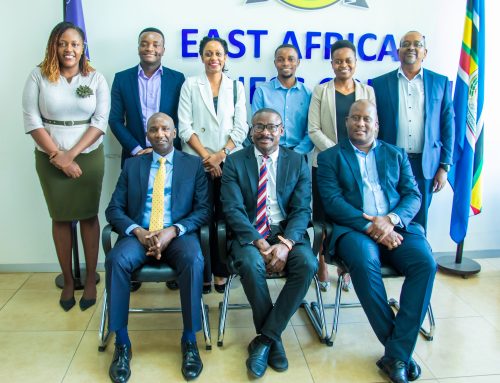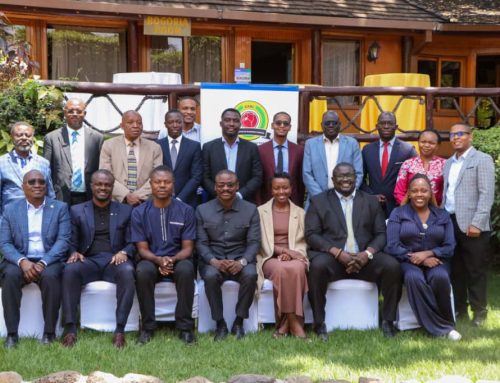Thursday, 22nd August 2024 – Dar es Salaam, Tanzania: The East African Business Council (EABC), in collaboration with the EU Technical Assistance Facility (EU-TAF) and GIZ-EAC, rolled out a Capacity-Building Workshop for SMEs on Exporting to the AfCFTA Market via E-Commerce Digital Platforms in Tanzania. Over 50 SMEs were empowered with the necessary information and skills to help them adopt and use e-commerce tools, enhancing their participation in intra-regional trade and the implementation of the African Continental Free Trade Area (AfCFTA).
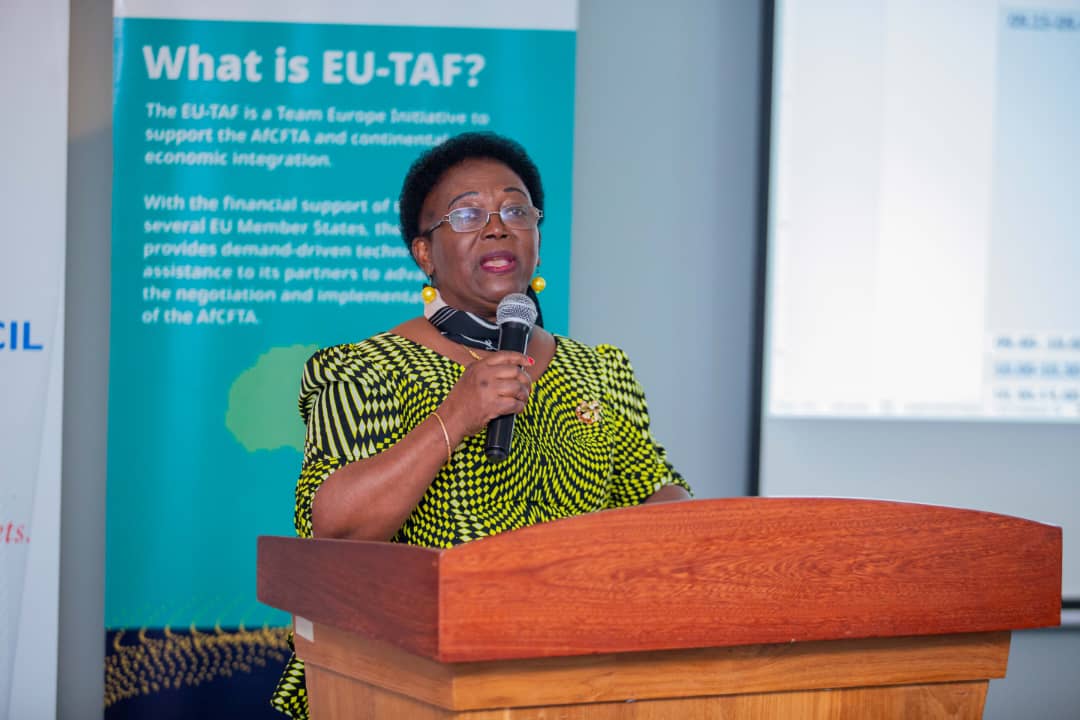 The sensitization workshop was officiated by Ms. Mercy Sila, Tanzania Private Sector Foundation (TPSF) Board Director and EABC Goodwill Ambassador. She expressed her appreciation to the EABC and EU-TAF for the initiative in raising awareness and promoting business growth in the region. She noted that, during and after COVID-19, the emergence and adoption of e-commerce had a positive spillover effect, creating employment opportunities such as new jobs in software development, internet service provision, data supply, and delivery services.
The sensitization workshop was officiated by Ms. Mercy Sila, Tanzania Private Sector Foundation (TPSF) Board Director and EABC Goodwill Ambassador. She expressed her appreciation to the EABC and EU-TAF for the initiative in raising awareness and promoting business growth in the region. She noted that, during and after COVID-19, the emergence and adoption of e-commerce had a positive spillover effect, creating employment opportunities such as new jobs in software development, internet service provision, data supply, and delivery services.
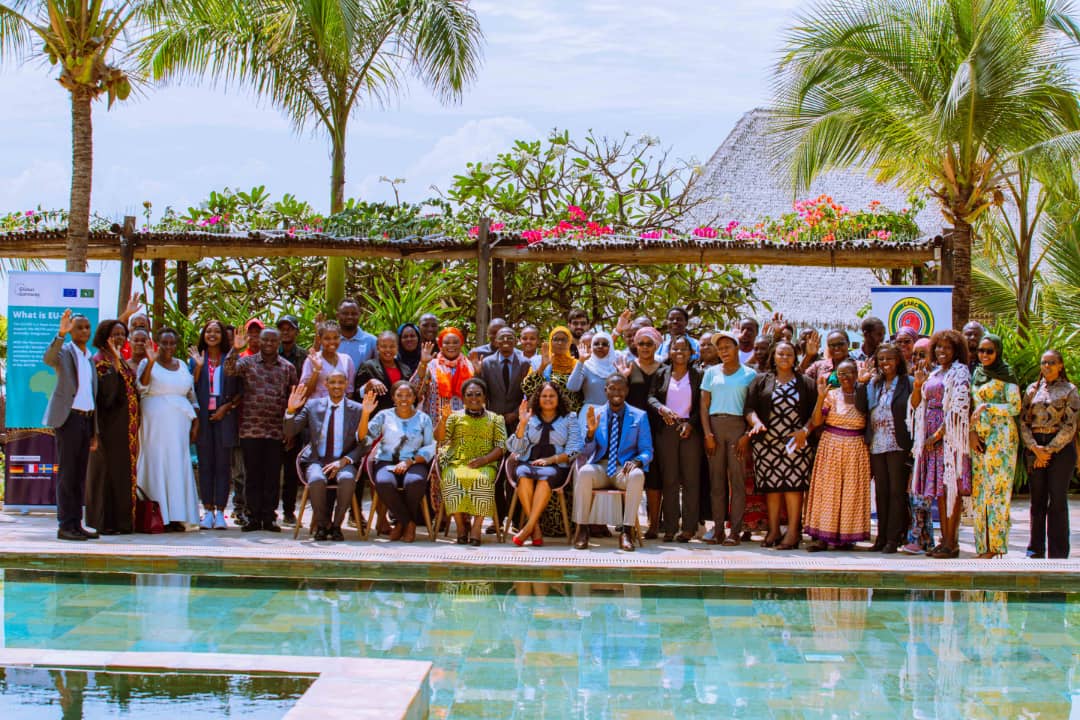 In his remarks, Geoffrey Kamanzi, Policy Manager for Trade in Services at EABC, representing the EABC Acting Executive Director, stated that the Guided Trade Initiative is already operational, and there is a need for the private sector to be well-informed on how to trade under the AfCFTA agreement. He further emphasized that the EABC has embarked on the sensitization process, and SMEs across all EAC Partner States will be trained on Exporting to the AfCFTA Market via E-Commerce Digital Platforms. Tanzania, in particular, was prioritized as one of the three EAC countries that have begun trading under the AfCFTA guided trade initiative.
In his remarks, Geoffrey Kamanzi, Policy Manager for Trade in Services at EABC, representing the EABC Acting Executive Director, stated that the Guided Trade Initiative is already operational, and there is a need for the private sector to be well-informed on how to trade under the AfCFTA agreement. He further emphasized that the EABC has embarked on the sensitization process, and SMEs across all EAC Partner States will be trained on Exporting to the AfCFTA Market via E-Commerce Digital Platforms. Tanzania, in particular, was prioritized as one of the three EAC countries that have begun trading under the AfCFTA guided trade initiative.
“For the AfCFTA to be effective, policymakers should engage the private sector throughout the negotiation of the agreement and create a conducive environment for SMEs and women entrepreneurs to trade across the continent,” said Geoffrey.
He highlighted challenges that impede trade, such as poor regulatory frameworks, different national currencies, poor courier services, limited awareness, duplication of costs, security issues, and ICT phobia.
Ms. Mercy Sila emphasized the need for the harmonization of e-commerce policies and standards regionally and internationally, the enhancement of business partnerships and alliances with regional and international firms, and the promotion of existing regional intergovernmental structures such as EAC, ECOWAS, COMESA, SADC, and AU to accelerate the development of transport and technological infrastructure and improve regional and intercontinental connectivity.
On her part, Ms. Rehema Nzallawahe, Policy Advisor on AfCFTA at GIZ-EAC, on behalf of Mr. Max Middeke, Deputy Program Manager, Support to the EAC Integration Process (SEAMPEC), noted that with a population of 1.3 billion, the AfCFTA offers unprecedented opportunities for businesses to expand their reach and tap into new markets across Africa. However, to fully harness these opportunities, it is essential that businesses in the EAC region are well-informed and equipped with the necessary tools and knowledge to navigate the digital landscape effectively.
She emphasized that the European Union, under the EU-TAF-funded project through GIZ, is collaborating closely with the East African Business Council (EABC) to sensitize and educate the private sector on how to leverage digital platforms to access and benefit from the AfCFTA market. “By understanding the digital trade environment, underpinned by the AfCFTA Digital Trade Protocol, our businesses can enhance their competitiveness, reduce transaction costs, and reach new customers across borders.”
Ms. Mwajuma Hamza, Executive Director of the Tanzania Women Chamber of Commerce, emphasized the importance of franchising as a strategy for expanding businesses and reaching new markets. She highlighted the need for SMEs to focus on producing export-quality, value-added products to remain competitive in the AfCFTA market. These products, she stressed, must be of high quality and consistently available to meet market demand effectively.
Ms. Hamza further encouraged SMEs to explore market opportunities within the AfCFTA, stating that with the right tools and strategic approach, Tanzanian businesses could access wider markets across Africa. She also introduced ISOKO Tanzania, a platform designed to support Tanzanian entrepreneurs in their efforts to expand and thrive in new markets.
The two-day workshop convened more than 50 SMEs from sectors such as IT and e-payment providers, agro-processing, importation, exportation, arts and crafts, e-commerce platform operators, Business Membership Organizations, and Sectoral Associations, who will be trained on leveraging the single digital market for business growth over the two days.

